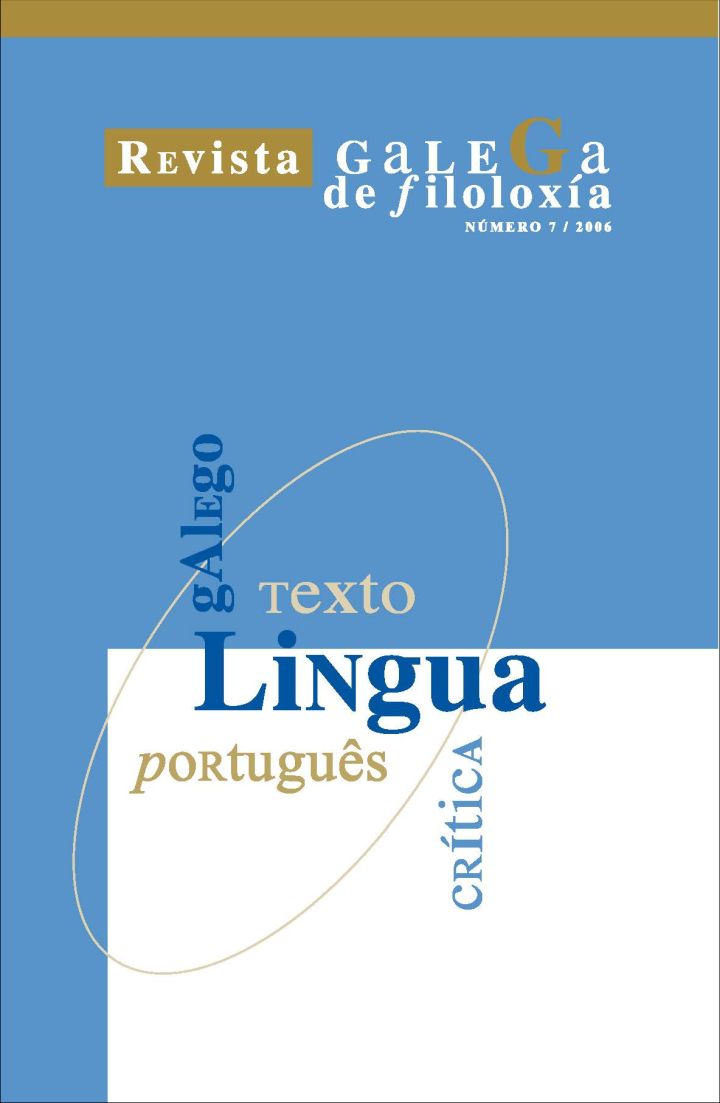Phallocentrism and heteronormativity in translation: sweeping away women and lesbians by the stroke of their plume
Main Article Content
Abstract
This transdisciplinary paper uses translation-based studies as a methodological tool for exploring the way translators seen as archetypicallanguage users can and do project socially dominant heterosexist norms masquerading as neutral interpretations via inappropriate language usage. The article specifically deals with andocentric language conventions which of necessity lead to gender and sexual stereotyping in general and heterosexism in particular. As well as analysing the way translation has been used quite consciously as a means of censuring non-malestream gender roles, especially female sexuality, within the theoretical framework of covert versus overt gender associated with the related concepts of semantic denotation and connotation, the article goes on to explore the way translation-based exercises using epicene and grammatical-gendered language pairs can be deployed as a way of bringing to the surface underlying preconceptions of which the translator cum language-user may not even be aware. On a broader level, the article shows that the implications that translation as a means of censuring not only socially marginalised sexualities but also as a means ofprojecting, wittingly or otherwise, a particular ideological world-view ofwhat is assumed to be normal and what is not, calling for a need to heighten translator awareness and responsibility regarding their own culturally and socially constrained expectations.
Keywords:
Downloads
Metrics
Article Details
References
Ager, S. (1998-2004): "Nushu", en Ager, S, Omniglot, http://www.omniglot.eom/writing/nushu.htm.
Baxter, R.N. (2005): "On the need for non-sexist language in translation", en Thao Le (2005), Language, Society and Culture, 15 http://www.edue.utas.edu.au/users/tle/JOURNAL/ARTICLES/2005/15-1.htm
Bodine, A. (1975): "Androcentrism in prescriptive grammar: singular 'they', sex-indefinite 'he', and 'he or she"', Language in Society, 4 (2): 129-146.
Boulter, A. (2002): Around the Houses (London: Serpent's Tail).
Braun, F. (2001): "The Communication of Gender in Turkish", en Hellinger, M / Bußmann, H. (eds.) (2001), Gender across languages. Vol. 1: 283-310 (Amsterdam / Filadelfia: John Benjamins).
Casavent, J. (2003): Twist of Fate (Nederland: Yellow Rose Books).
Colin, S. / Koşar, S. (1997): Le turc tout de suite (París: Pocket-Langues pour tous).
Dworkin, A. (1994): "The Unremembered: Searching for Women at the Holocaust Memorial Museum", Ms. Magazine, Vol. V, 4: 5258.
Engelberg, M. (2002): "The Communication of Gender in Finnish", en Hellinger, M. / Bußmann, H. (eds.) (2002), Gender across languages. Vol. 2: 109-132 (Amsterdam / Filadelfia: John Benjamins).
European Commission (1995-2005): "Gender Mainstreaming", en Europa http://europa.eu.int/comm/employment_social/equ_opp/gms_en.html.
Even-Zohar, l. (1990): "Polysystem Studies", International Joumal For Theory and Analysis of Literature and Communication. Vol. 11, 1, http://www.ifrance.com/itamarez/ps/polysystem.html.
Fillmore, C. J. (1976): "Frame semantics and the nature of language", Annals of the New York Academy of Sciences: Conference on the Origin and Development of Language and Speech, 280: 20-32.
Von Flotow, L. (1997): Translation and Gender. Translating in the 'Era of Feminism'(Manchester / Ottawa: St. Jerome Publishing e University of Ottawa Press).
Frank, A. / Hoffmann, C. / Strobel, M. (2004): "Gender Issues in Machine Translation", en International Symposium Gender Perspectives Increasing Diversity for Information Society Technology (GIST) (Bremen 2003) (Heidelberg: Lingenio).
Garréta, A. F. (1999): La Décomposition (París: Grasset et Fasquelle).
Haden Elgin, S. (1988): A First Dictionary and Grammar of Laadan (Society for the Furtherance and Study of Fantasy and Science Fiction, Inc).
Hellinger, M. / Bußmann, H. (2001): "Gender across language. The Linguistie Representation of Women and Men", en Hellinger, M. / Bußmann, H. (eds.) (2001), Gender across languages, Vol. 1: 1-25 (Amsterdam / Filadelfia: John Benjamins).
de Lotbinière-Harwood, S. (1991): Re-belle et infidèle. La traduction comme pratique de réécriture au féminin / The Body Bilingual. Translation as rewriting in the feminine (Ontario / Quebec: Woman's Press e Éditions du remue-ménage).
Martín Ruano, M.R. (2003): El (des)orden en los discursos: la traducción de lo políticamente correcto. Tese de doutoramento en formato dixital (Granada: Universidad de Granada)
Minsky, M. (1975): "A framework for representing knowledge", en The Psychology of Computer Vision: 211-277 (Nova lorque: McGraw-Hill).
Nissen, U.K. (1994): "Is cook 'der Koch' oder 'die Kochin'? Problems of (social) gender in translation", Hermes. Zeitschriftfür Klassische Philologie, 12: 51-63.
Nissen, Uwe Kjær (2002): "Aspects of Translating Gender", en Hentschel, E. (ed.) (2002), Sprache und Geschlecht/Language and Gender, Linguistik on-line, 11, 2/02. http://www.linguistik-online.de/11_02/nissen.pdf.
Riera, C. (1989): Te deix, amor, la mar com a penyora (Barcelona: Laia).
Rice, C. (2001): Snow Garden (Nova lorque: Miramax Books).
Rich, A. (1979): On Lies, Secrets and Silence: Selected Prose: 1966-78 (Nova lorque: Norton).
Sedgwick, E.K. (1995): Performativity and Performance (Essays from the English Institute) (Nova lorque e Londres: Routledge).
Simons, M. A. (1983): "The Silencing of Simone de Beauvoir: Guess What's Missing from the Second Sex", Women's Studies International Forum, 6, n° 5.
Smith, N. (2002): Language, Bananas & Bonobos. Linguistic Problems, Puzzles and Polemics (Oxford: Blackwell).
Spender, D. (1985): Man made language (London: Routledge & Kegan Paul).
Toury, G. (1981): "Translated Literature - System, Norm, Performance: Toward a TT-Oriented Approach to Literary Translation", en Poetics Today, 11, 4 (Tel Aviv: The Porter Institute for Poetics and Semiotics).
VV.AA. (2006): "Lesbian", en Wikipedia, The Free Encyclopedia. http://en.wikipedia.org/w/index.php?title=Lesbian&oldid=40553903.
VV.AA. (2006): "Sappho", en An encyclopedia of gay, lesbian, bisexual, transgender and queer culture (Chicago: Gbltq, Inc.). http://www.glbtq.com/literature/sapp-ho,3.html.
Wandruszka, M. (1969): Sprachen: vergleichbar und unvergleichbar (Munique: R. Piper).
Whorf, B. (1964): Language, Thought, and Reality: Selected Writings of Benjamin Lee Whorf (Cambridge-Boston: MIT Press).



